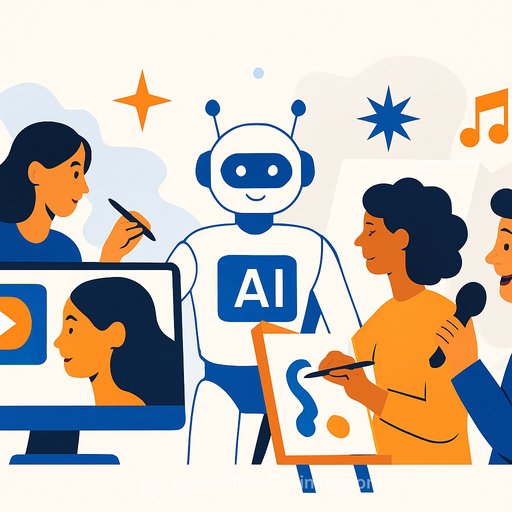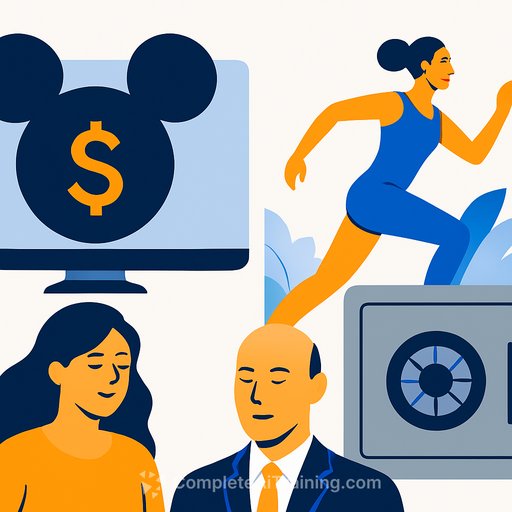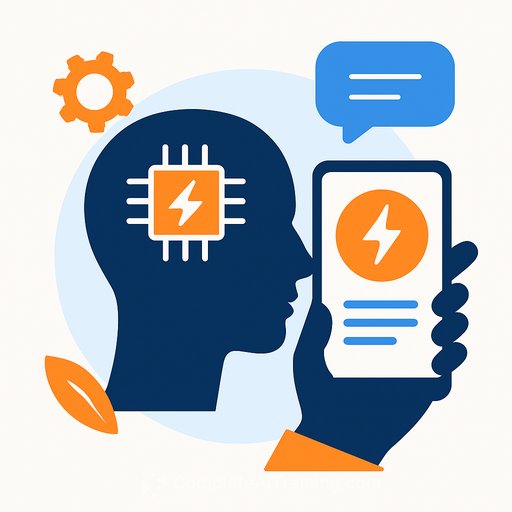AI Impact Awards: Arts & Media
AI is often associated with improving efficiency in data-heavy industries like software development and health care. But its role in creative fields, where human touch matters, remains debated. The winners of Newsweek's AI Impact Awards in Arts & Media highlight how AI complements creativity rather than replaces it. These companies use AI to boost efficiency, broaden access, and enhance creative output.
Interdependence: AI Enhancing PR and Media Strategy
Interdependence, a PR and strategic communications firm with offices across the U.S., won the AI Impact Award for Best Outcomes in Digital Media & Arts. The firm serves clients from entertainment to travel, managing media relations, social media, influencer marketing, branding, and SEO. They use a generative AI platform called Interviewed to identify emerging trends by tracking online customer search behavior.
According to Interdependence President Sarah Schmidt, the AI detects spikes in click rates, signaling emerging topics. This allows the team to act quickly with relevant pitches. For example, when celebrities like Kylie Jenner and Megan Fox popularized pink hair, Interviewed flagged the trend early. Interdependence then alerted beauty editors, journalists, and influencers, securing top media placements for their client Overtone's semipermanent hair dye aligned with the trend.
This AI-driven approach helped the campaign gain nearly 79 million impressions and placements in outlets like Glamour, Allure, and Yahoo Lifestyle. Interdependence continuously refines its AI tools by updating keywords and improving data tracking. This reduces time spent on routine tasks, allowing teams to focus on creative strategy and client innovation.
Schmidt emphasizes that AI supports but does not replace human creativity and relationship-building. The firm sees AI as a way to optimize and empower its teams, combining technology with human insight to stay competitive and deliver value.
Spines: Making Publishing Faster and More Accessible
Israeli author Yehuda Niv founded Spines, an AI-driven publishing platform that cuts through traditional publishing barriers. Winning the AI Impact Award for Best Outcomes in Written Media & Arts, Spines speeds up the publishing process from 6–18 months to just 2–3 weeks and reduces costs from tens of thousands to mere thousands of dollars.
Spines automates key publishing tasks like spelling and grammar checks, page formatting, cover design, and audiobook creation. It also helps authors market their work across extensive distribution networks, allowing them to keep full royalties and control over their content.
Niv points out that Spines empowers authors to focus on writing by handling the technical and marketing aspects. The platform has published over 2,000 titles in 2024 alone and aims for 8,000 by the end of 2025. High author satisfaction and repeat publishing show its success.
Despite pushback from traditional publishing circles, Niv stresses that Spines is about enabling authors rather than replacing them. He challenges the gatekeeping mindset in publishing, arguing that readers should decide what’s quality writing, not elite publishers.
Moonvalley: AI Tools for Filmmakers
Moonvalley won the AI Impact Award for Best Outcomes in Visual Media & Arts by creating AI tools that lower production costs and speed up filmmaking. Their AI model, Marey, offers filmmakers control over camera movements, lighting, and scene composition, enhancing creative vision without replacing human craft.
Moonvalley’s data is unique because it uses licensed content from a network of creators, ensuring ethical AI training. The company recently opened public access to Marey, developed with input from filmmakers to fit naturally into existing workflows.
CEO Naeem Talukdar compares this AI advancement to past film innovations like Technicolor and CGI. While AI might eliminate some tasks, it also creates new roles and opportunities, particularly for independent filmmakers. Talukdar predicts cost savings of 30 to 50 percent that will enable smaller studios to produce higher-quality content.
Talukdar acknowledges industry skepticism but calls AI a tool that supports filmmakers in realizing their visions more efficiently. Rather than replacing directors, these tools extend creative possibilities and help budgets stretch further.
AI’s Role in Creative Industries
For PR professionals and communicators, these examples show how AI can sharpen trend detection, streamline workflows, and broaden access to creative production. The key takeaway is that AI enhances human creativity by automating routine tasks and offering new capabilities—not by replacing the unique value humans bring.
Integrating AI thoughtfully allows teams to focus on strategy, storytelling, and relationships while benefiting from faster, data-driven insights and more efficient production processes.
Your membership also unlocks:






